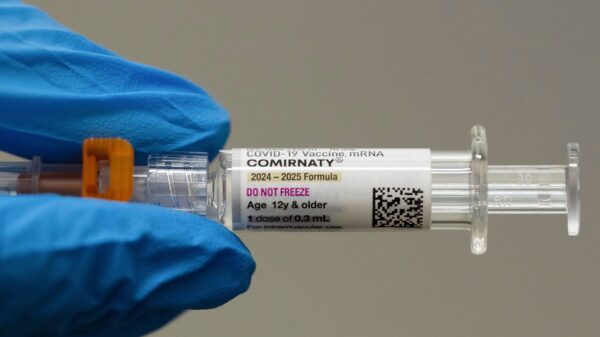The U.S. Food and Drug Administration (FDA) has approved leucovorin as the first medication specifically designed to treat autism, marking a significant milestone in autism research. This announcement was made during a press conference on March 15, 2024, by then-President Donald Trump, prompting immediate interest in the scientific community.
Dr. Edward Quadros, a research professor at SUNY Downstate University, has dedicated over two decades to studying the effects of folate absorption. He expressed his enthusiasm about the approval, stating that it reflects years of dedication and research. “This is the culmination of more than 20 years of work,” Quadros said in an interview with The Epoch Times. “We have always believed leucovorin could play a role in autism treatment.”
Understanding Leucovorin’s Role
Leucovorin, previously used primarily as an adjunct therapy in chemotherapy to mitigate the side effects of methotrexate, has shown potential benefits for individuals with autism. Research led by Quadros and his team indicates that leucovorin may improve cognitive and behavioral functions in autistic patients by enhancing folate metabolism, which is often impaired in these individuals.
Quadros highlighted that the FDA’s approval signifies a shift in how autism is treated. “For too long, we have relied on behavioral therapies alone,” he noted. “This approval opens the door for pharmacological interventions that could provide substantial improvements in quality of life for many.”
Despite the excitement surrounding leucovorin’s approval, experts caution that it is not a cure for autism. Rather, it is intended to be part of a comprehensive treatment plan that may include behavioral therapies and dietary interventions. As the field of autism research evolves, the integration of pharmacological options like leucovorin could provide new hope for families affected by autism spectrum disorders.
The Next Steps in Research and Treatment
Following the approval, Dr. Quadros and his colleagues plan to conduct further studies to evaluate the long-term effects and safety of leucovorin in autism treatment. “We want to ensure that we understand the full spectrum of its benefits and any potential side effects,” he emphasized.
The medical community is now tasked with the responsibility of educating healthcare providers and families about this new treatment option. Quadros underscored the importance of disseminating accurate information regarding the use of leucovorin, stressing that it should be administered under medical supervision.
As more data becomes available, families can expect clearer guidance on how to integrate leucovorin into their treatment regimens. The FDA’s decision represents a pivotal moment in the ongoing journey to better understand and address the complexities of autism.
In conclusion, the approval of leucovorin by the FDA marks a promising development in the treatment of autism. As research continues, many hope this will lead to more effective interventions and improved outcomes for individuals on the autism spectrum.





































































